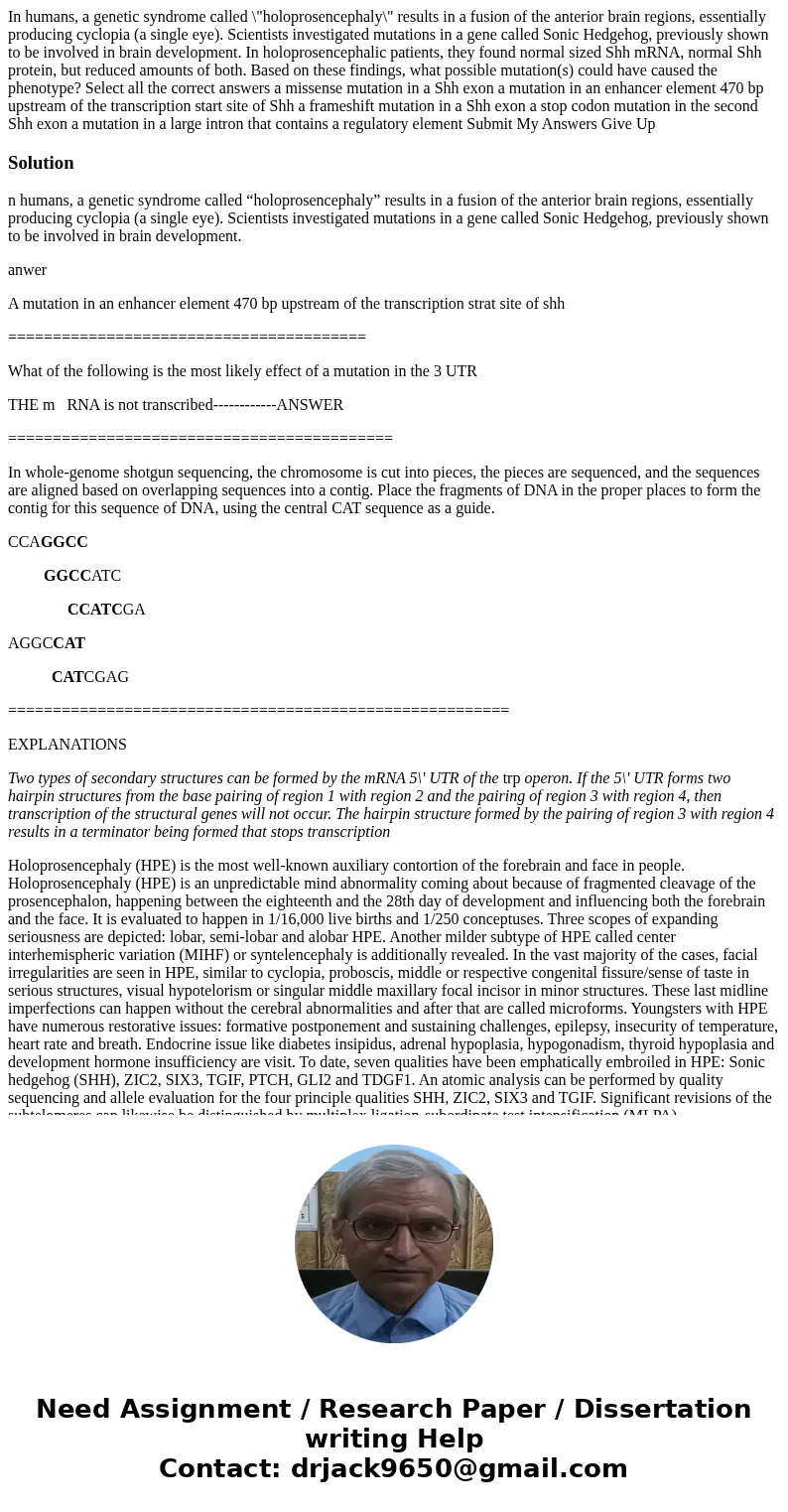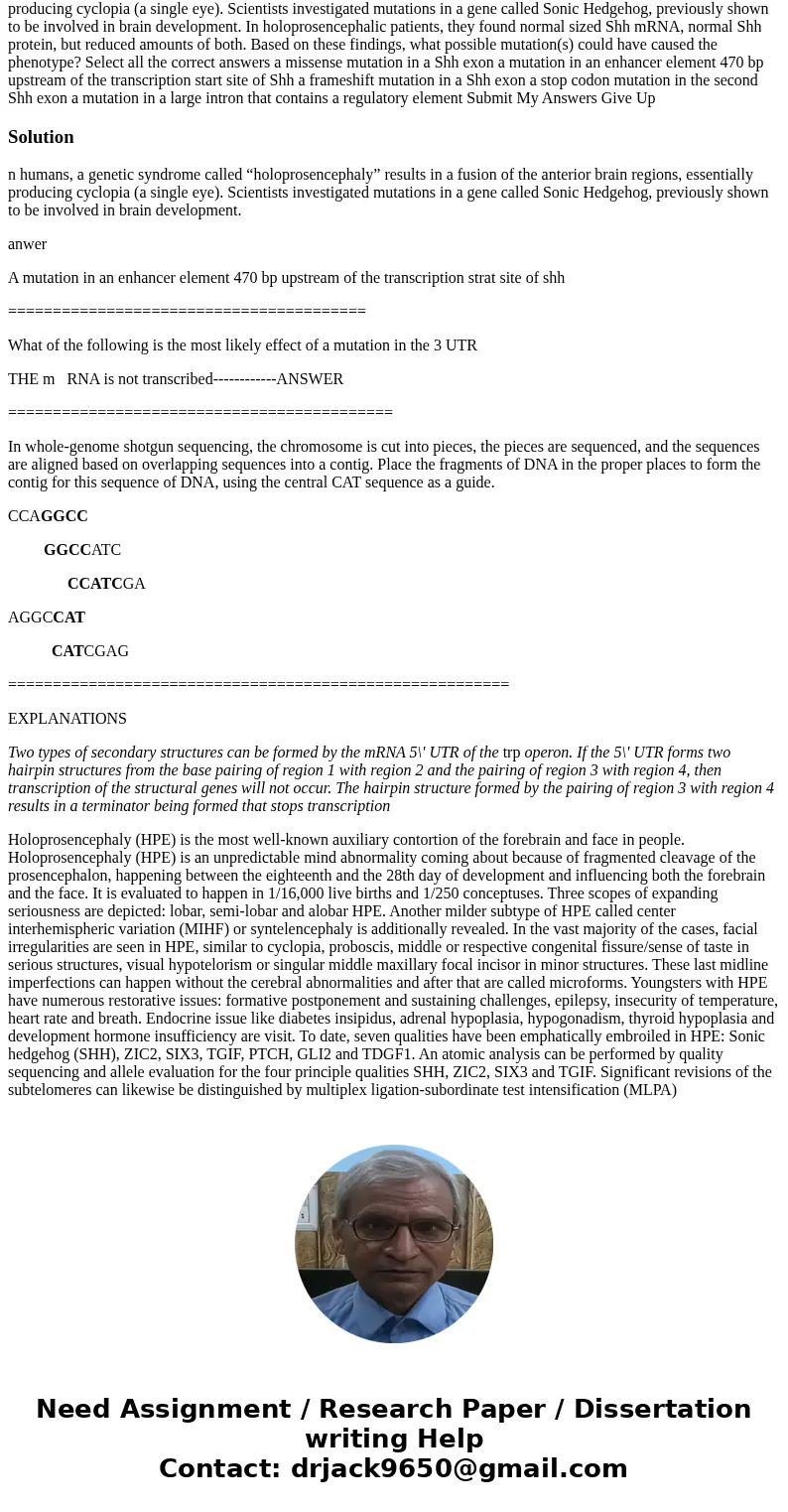In humans a genetic syndrome called holoprosencephaly result
Solution
n humans, a genetic syndrome called “holoprosencephaly” results in a fusion of the anterior brain regions, essentially producing cyclopia (a single eye). Scientists investigated mutations in a gene called Sonic Hedgehog, previously shown to be involved in brain development.
anwer
A mutation in an enhancer element 470 bp upstream of the transcription strat site of shh
========================================
What of the following is the most likely effect of a mutation in the 3 UTR
THE m RNA is not transcribed------------ANSWER
===========================================
In whole-genome shotgun sequencing, the chromosome is cut into pieces, the pieces are sequenced, and the sequences are aligned based on overlapping sequences into a contig. Place the fragments of DNA in the proper places to form the contig for this sequence of DNA, using the central CAT sequence as a guide.
CCAGGCC
GGCCATC
CCATCGA
AGGCCAT
CATCGAG
========================================================
EXPLANATIONS
Two types of secondary structures can be formed by the mRNA 5\' UTR of the trp operon. If the 5\' UTR forms two hairpin structures from the base pairing of region 1 with region 2 and the pairing of region 3 with region 4, then transcription of the structural genes will not occur. The hairpin structure formed by the pairing of region 3 with region 4 results in a terminator being formed that stops transcription
Holoprosencephaly (HPE) is the most well-known auxiliary contortion of the forebrain and face in people. Holoprosencephaly (HPE) is an unpredictable mind abnormality coming about because of fragmented cleavage of the prosencephalon, happening between the eighteenth and the 28th day of development and influencing both the forebrain and the face. It is evaluated to happen in 1/16,000 live births and 1/250 conceptuses. Three scopes of expanding seriousness are depicted: lobar, semi-lobar and alobar HPE. Another milder subtype of HPE called center interhemispheric variation (MIHF) or syntelencephaly is additionally revealed. In the vast majority of the cases, facial irregularities are seen in HPE, similar to cyclopia, proboscis, middle or respective congenital fissure/sense of taste in serious structures, visual hypotelorism or singular middle maxillary focal incisor in minor structures. These last midline imperfections can happen without the cerebral abnormalities and after that are called microforms. Youngsters with HPE have numerous restorative issues: formative postponement and sustaining challenges, epilepsy, insecurity of temperature, heart rate and breath. Endocrine issue like diabetes insipidus, adrenal hypoplasia, hypogonadism, thyroid hypoplasia and development hormone insufficiency are visit. To date, seven qualities have been emphatically embroiled in HPE: Sonic hedgehog (SHH), ZIC2, SIX3, TGIF, PTCH, GLI2 and TDGF1. An atomic analysis can be performed by quality sequencing and allele evaluation for the four principle qualities SHH, ZIC2, SIX3 and TGIF. Significant revisions of the subtelomeres can likewise be distinguished by multiplex ligation-subordinate test intensification (MLPA)


 Homework Sourse
Homework Sourse